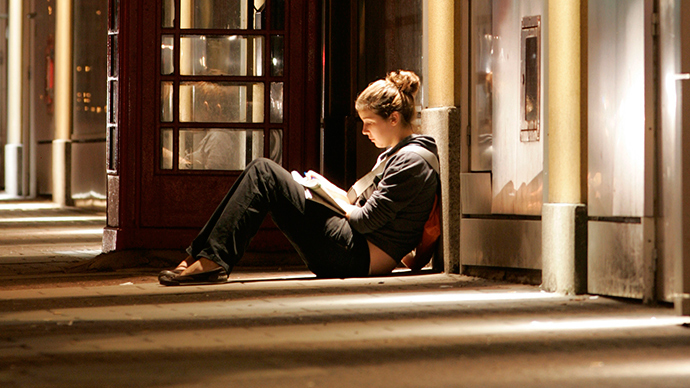Era of loneliness? More than 66% of British adults are lonely

More than two thirds of adults in the UK feel lonely as social interaction appears to be on the decline. Younger people who use social media and technology daily experience the most loneliness, a study has found.
A nationwide study conducted by The Big Lunch found that 68 percent of adults in the UK say they feel lonely either often, always or sometimes. This is most acute among 18 to 34 year olds, with 83 percent of this age group experiencing loneliness.
More than a third (38 percent) said they now have less interaction with people they know than they did five years ago, while a quarter (27 percent) only interact socially with others once a week or less.
The research also found that adults in Britain spend only 4 percent of their time – around one hour a day – engaging in social interaction and, in a typical week, interact with only six friends, family members or neighbors, either in face-to-face conversations, a phone call or chatting online.
On average, women spend 15 minutes longer interacting socially each day than men.
Dr Rebecca Harris, a psychologist at the University of Bolton, said: “The findings show that we’re spending less time having social interaction than we used to, we have fewer friends than we’d like and we’re finding it harder to make new friends. This decline in social contact could be contributing to the rise of loneliness in the UK.”
READ MORE: Alien-Nation: Nearly 5 million Brits ‘have no real friends’
“Loneliness is far more complicated than people imagine. It’s often seen as a one dimensional state, either ‘lonely’ or ‘not lonely’ and that just isn’t the case,” she added. “It can be a temporary state, but when prolonged, it’s a serious issue.”
While social interactions are declining, many also find it harder to make new friends. A third (33 percent) admitted they now find it harder to make new friends than they did 10 years ago.
The majority of UK adults have a small number of close friends. One in 10 even said they do not know how to start friendships any more. More than 40 percent of 18 to 34 year olds wish they had more friends, while 15 percent say they are “too scared” to talk to people they don’t know.
Young people feel lonelier than the elderly, the study suggests. Around half (48 percent) of people aged 55 and over say they never feel lonely. In comparison, 16 percent of 18 to 34 year olds said they always feel lonely.
Commenting on the research, Dame Esther Rantzen DBE, Founder of ChildLine and The Silver Line, said: “Loneliness has become an epidemic in the UK. This survey highlights how loneliness affects both young people and the older generation, while other research shows that it can contribute to depression and other serious risks to health.”












